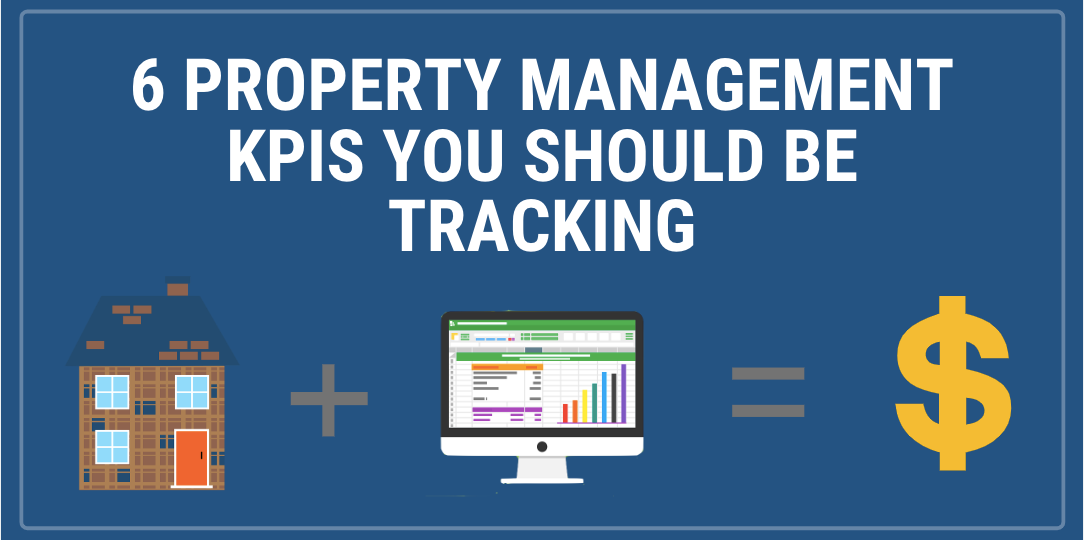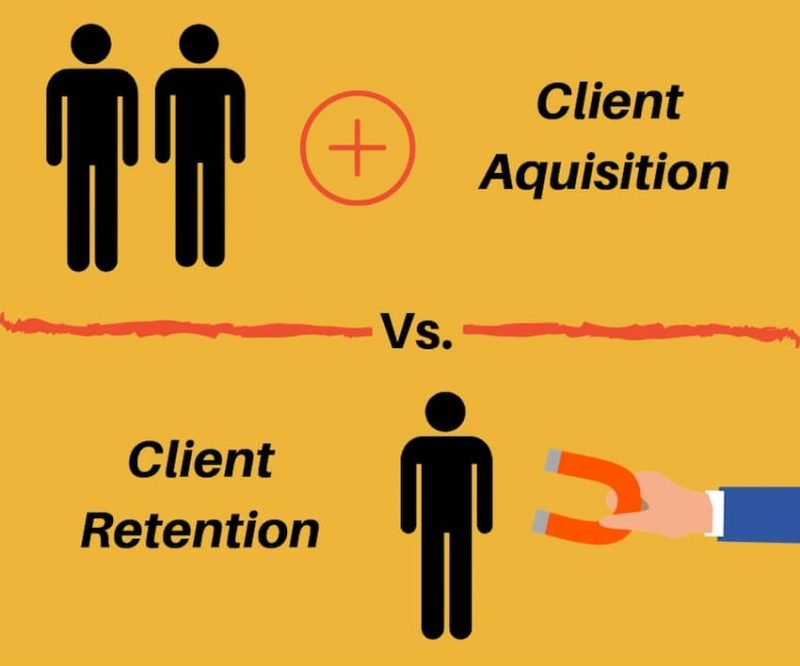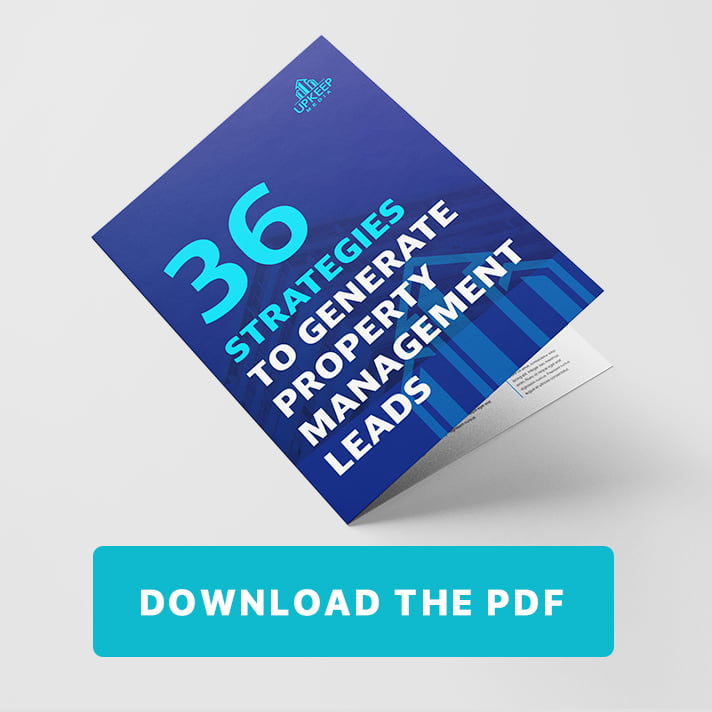
What is a KPI? And why are they important for your property management company?
Key Performance Indicators (KPIs) are metrics that help you measure, manage and monitor your company’s operations and performance.
They are important because they show you whether or not your property management company is projected to meet its goals.
Any operation can benefit from more structure. If you’re looking to better support your business, the right KPIs can help you readjust everything from your company’s fees, to its spending, and more.
By the end of this post, I promise that you’ll know how to take full advantage of KPIs (to the benefit of your property management company’s bottom line).
Here are 6 KPIs that have proven to be effective for property managers and their businesses:
1. Clients Won vs. Clients Lost
This is the first and most important KPI for any property management company to keep track of.
That’s because every property manager should be monitoring their business development efforts to remain effective and profitable.
Although losing rental property owners can be tough on business, the only thing that’s worse is not keeping track of them.
Not knowing the number of clients you have means that you could be overspending on your operations without even knowing it.

By monitoring this KPI you’ll be able to keep your business thriving by:
- Having a more accurate budget for operations and client acquisition.
- Being more strategic and proactive when looking for new clients.
- Collecting relevant information about why a client has decided to terminate their contract with you. (Their reasons could offer you insights into what could be wrong and how to fix it before losing more clients.)
Monitoring this KPI is as easy as creating an Excel spreadsheet with a list of your clients and some brief information about their profile like:
- When they started doing business with your property management company.
- What were they looking to gain by hiring your services?
- How much you charge them for your services.
- What caused them to stop doing business with you? Were their original expectations met?
2. Tenant Turnover/Retention
Tracking tenant turnover/retention is recommended because it will help you notice if certain management changes are needed.
The most significant reason why tenant turnover is bad for business is its related costs. That’s because the process requires you to spend time and resources on expenses like:
- Processing the turnover.
- Preparing the unit for new occupants.
- Managing the vacant unit.
- Advertising.
- Screening and performing background checks of potential tenants.
If your average tenant moves out quicker than you can say “finalized rental agreement” then you might benefit from changing your management approach in a few different ways.

Want Help Growing Your Property Management Company?
Most turnover is a result of poor management due to:
- Late/overdue repairs.
- Unresponsive property managers.
- Poor maintenance.
- Badly selected tenant in the first place.
If any of these points ring true to you, try speaking to your team to brainstorm solutions. Find ways to make your employees more accessible to existing tenants while refining your screening process when looking for new tenants.
3. Average Days-to-Lease
Speaking of tenants, how long does it usually take your property management company to fill a vacancy?
If you don’t know this important KPI about your business, then it is crucial that you start keeping track of this right away.
With each day that passes by, a vacant unit costs your business money. That’s because, for most companies, you won’t be able to collect your management fee while the property remains vacant.
Once you start tracking your average days-to-lease, you will then be able to minimize that average and its related costs more effectively.

If you notice that some of your units have been vacant for longer than normal, then you should consider changing your approach of acquiring tenants.
This means you can switch-up your marketing strategy, rent price, or you could also try making some aesthetic changes to the property itself.
If you do change the price of rent, make sure that the new amount is within the neighbourhood’s average, so you aren’t losing out on long-term earnings.
4. Total Revenue Metrics
How much is your property management company making each month?
Naturally, it’s always smart to monitor your company’s revenue. That’s because revenue drives your business. Without a consistent revenue stream, your property management company is bound to run into financial difficulty.
Generally, an increasing revenue stream indicates growth and success. And if it doesn’t, this KPI acts as a great wakeup call for you to make some changes in your company’s operations.
The changes can include an increase in your marketing budget or refocusing your efforts on building new business relationships that will lead to additional revenue.

Want Help Marketing Your Property Management Company?
5. Costs Incurred to Acquire New Clients
How much do you spend to acquire new clients?
This KPI is important because keeping track of this metric will make it easy for you to scale your business.
It does so by helping you to know whether your client acquisition efforts are cost-effective. It also helps you to determine how much money you should set aside to reach your desired growth goals.

For example, if you know you want to add on 100 new properties this year and your average cost of client acquisition is $300 per property, you’ll need to spend approximately $30,000 ($300 * 100) on marketing efforts to acquire the target amount of growth you set for your company this year.
To calculate the cost of acquiring a new client, you need to take your annual expenditure on marketing divided by the number of clients you brought in that year.
This measure will also help you to see if your marketing efforts are effective. If you’re overspending on client acquisition there’s probably room for changes in your marketing strategy.
6. Property Management Fees
As a property manager, you want to make sure your rates are in line with the industry average.
Finding out what other property managers charge for their services and comparing it to your fees can be beneficial.
It helps you to know if your fees are affordable or scaring away potential clients. You may also discover that you’ve been charging your clients well-below what you should.
Offering discounted services to your clients isn’t always a bad thing. However, you shouldn’t do it at the expense of your business and its operational needs.
Improving the services you offer by adopting new technologies is more than enough reason to raise your fees.
Remember that your company can only deliver high-quality management services if – and only if – it has sufficient income to thrive.

Managing, monitoring, and measuring your company’s performance metrics can seem like a complicated task.
However, without tracking key performance indicators it’s very difficult to monitor the health of your business.
From showing you where your property management company can improve, to measuring your growth, KPIs benefit your business in many ways, making them more than worth the effort.
Take advantage of them to improve and better streamline your company’s operations and growth. After all, you can’t manage what you can’t measure.



